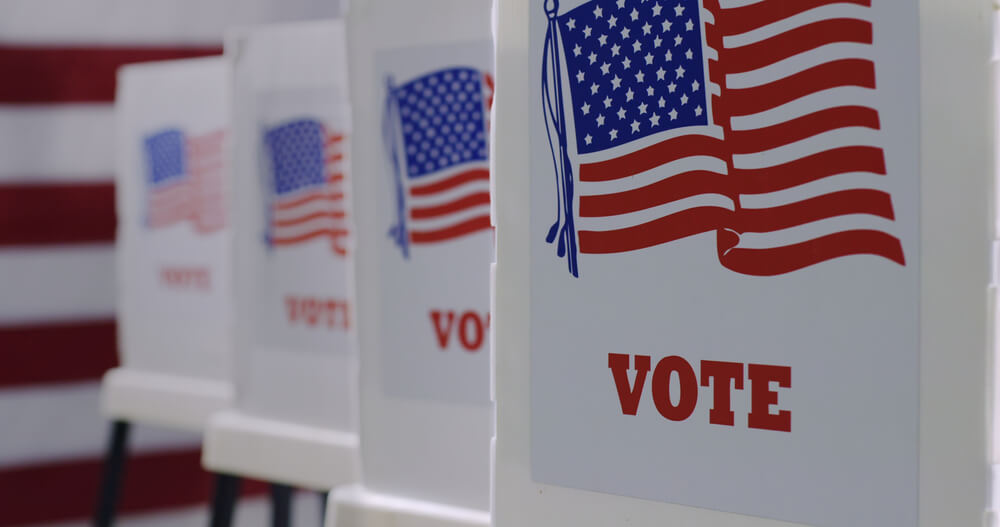
In a shift from Virginia’s last three governors, Gov. Glenn Youngkin’s administration is requiring people with felony convictions to proactively apply to regain their voting rights upon release from prison and is not automatically restoring rights for any group of offenders.
In a letter sent to a Democratic state senator this week in response to questions about an apparent slowdown in the pace of rights restoration grants after Youngkin took office, Secretary of the Commonwealth Kay Coles James said the administration’s policy is to give former inmates an application upon release that explains how they can ask for their civil rights back.
“Our website was updated to include that applications are considered individually and not granted on an automatic basis,” Coles James, whose office oversees rights restoration, wrote Wednesday to Sen. Lionell Spruill, D-Chesapeake, who chairs the Senate Privileges and Elections Committee.
The Virginia Constitution gives governors broad authority to set their own policies in granting or rejecting rights restoration requests. On Thursday, the Youngkin administration would not elaborate on what specific criteria the governor is using to make those decisions.
Spruill promised to “fight back against the rollback of these rights.”
“Once you have served your time, your rights should be restored for non-violent felons. Period,” Spruill said in a written statement. “I will fight against this secret process and secret set of rules that the governor is using to decide who can be denied the right to vote.”
The American Civil Liberties Union of Virginia, which supports a less strict rights restoration system, said the Youngkin administration “appears content to leave Virginians in the dark.”
“The Youngkin administration’s failure to disclose the criteria by which it will review incarcerated people’s applications for the restoration of their voting rights is hugely concerning,” said ACLU of Virginia Policy Director Ashna Khanna.
Virginia is one of just a few states with a constitutional rule that automatically disenfranchises people with felony convictions unless a governor chooses to restore their rights.
In his first year in office, Youngkin restored rights to more than 4,300 Virginians, according to an annual report on criminal justice clemency actions. That’s roughly in line with how many rights restorations former Democratic Govs. Tim Kaine and Mark Warner granted in their entire four-year terms, but it puts Youngkin well behind the pace set by more recent Democratic Govs. Terry McAuliffe and Ralph Northam. McAuliffe restored rights to more than 173,000 people. Northam granted more than 126,000 rights restorations. Former Republican Gov. Bob McDonnell, who ramped up rights restorations while he was in office, approved more than 8,000.
Youngkin spokeswoman Macaulay Porter said the governor “firmly believes in the importance of second chances for Virignians who have made mistakes but are working to move forward as active members of our citizenry.”
“The Constitution places the responsibility to consider Virginians for restoration in the hands of the Governor alone, and he does not take this lightly,” Porter said. “Restoration of rights are assessed on an individual basis according to the law and take into consideration the unique elements of each situation, practicing grace for those who need it and ensuring public safety for our community and families.”
In recent years, there has appeared to be a growing bipartisan consensus that a fundamental issue like voting rights shouldn’t be left to the whims of individual governors.
Democrats have pushed to make the rights restoration process as close to automatic as legally possible, arguing everyone who has reentered society deserves a say in the democratic process. Some Republicans, particularly those more open to criminal justice reform, agree the process should be more forgiving. The GOP’s tough-on-crime wing has insisted the loss of civil rights is an appropriate consequence for felony offenses that may or may not bring substantial prison time, and some Republican lawmakers have insisted on having rights restoration rules in place that take into account the severity of someone’s crime and whether they still owe money to the courts or their victim.
The rights restoration form being used by the Youngkin administration specifically asks applicants if they have been convicted of a violent crime or still owe fines, fees or restitution.
In a statement, House Speaker Todd Gilbert, R-Shenandoah, said he was “pleased that there is some modicum of scrutiny as to whether someone has fulfilled their obligations to their victims and society.”
Politics

Biden administration bans noncompete clauses for workers
The Federal Trade Commission (FTC) voted on Tuesday to ban noncompete agreements—those pesky clauses that employers often force their workers to...

Democratic shakeup in Virginia primaries for governor, lieutenant governor
Richmond Mayor Levar Stoney quit his bid for governor and jumped into the race to be the Democratic nominee for lieutenant governor. The race for...
Local News

The zodiac signs of 12 iconic women offer insight into their historic accomplishments
Zodiac signs can tell you a lot about someone’s personality. Whether they’re an earth, water, air, or fire sign, these 12 categories (which are...

Virginia verses: Celebrating 5 poetic icons for National Poetry Month
There’s no shortage of great writers when it comes to our commonwealth. From the haunting verses of Edgar Allan Poe, who found solace in Richmond's...





